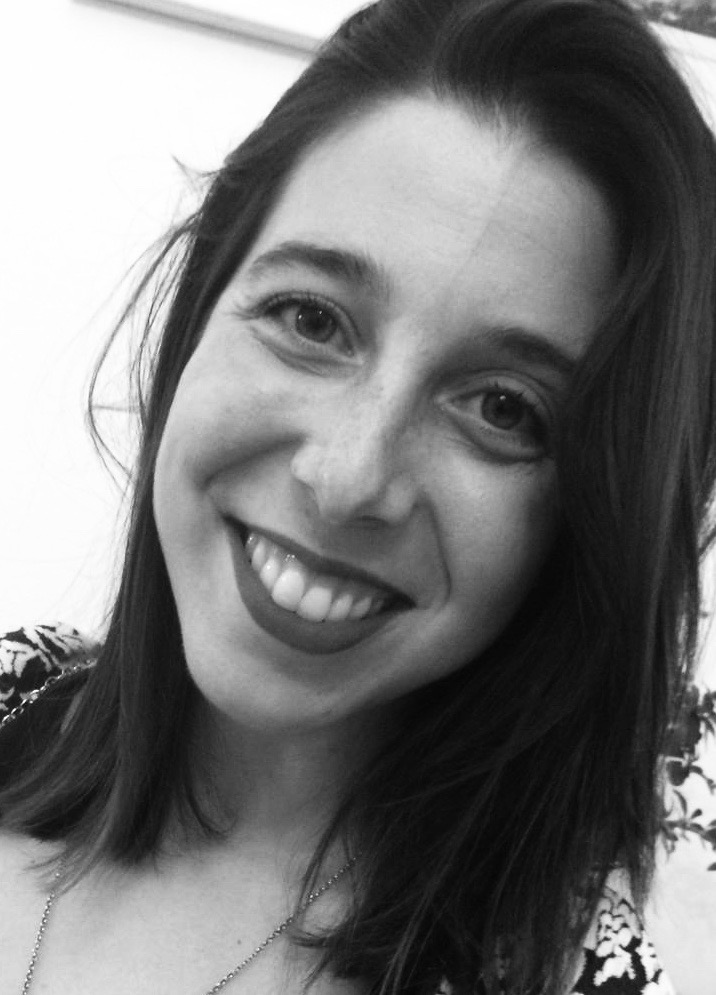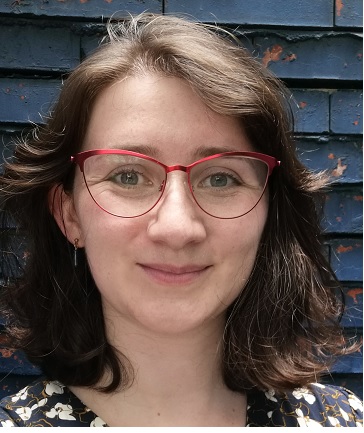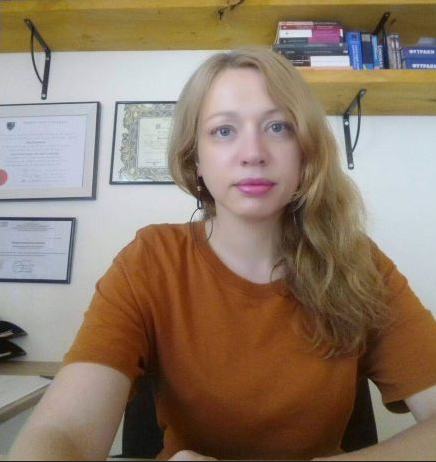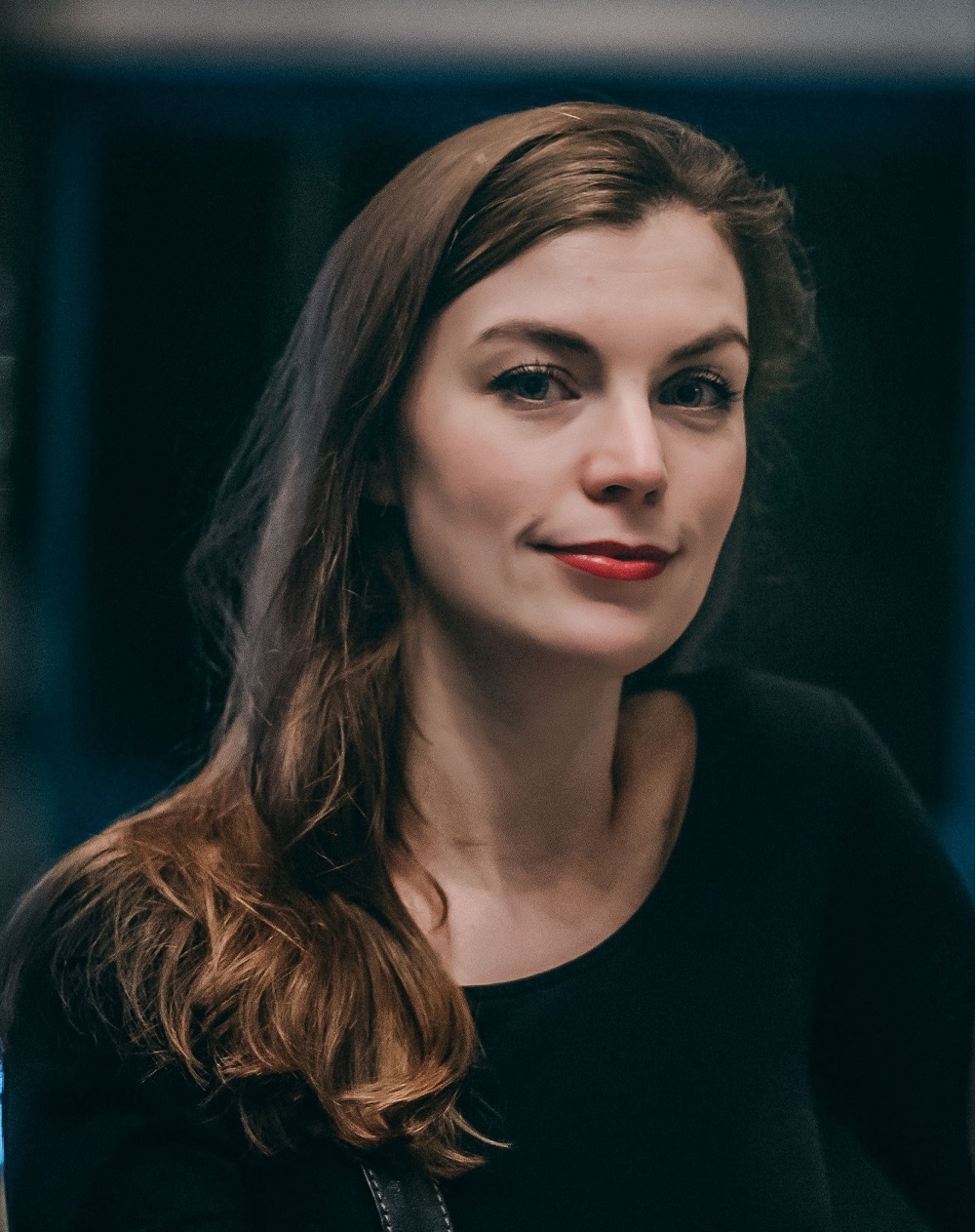
Chiara Cocco
Thesis topic: Transforming tradition: performance of heritage, community and gender in the Festival of Sant’Efisio in Sardinia, Italy.
Supervisors: Dr Kerstin Pfeiffer and Prof Mairead Nic Craith
Twitter: @ChiaraCocco88
Email: cc80@hw.ac.uk
Chiara holds an MSc in Cultural Resource Management from Heriot-Watt University. Her research interests include ethnographic methods in festival studies and cultural heritage research. She is particularly interested in performance theory and liminality and its application to the study of festivals. Her current research project explores the performance of heritage, community and gender in cultural festivals by analysing the Festival of Sant’Efisio in Sardinia.
In her own words:
My thesis looks at the cultural heritage of the Festival of Sant’Efisio in Sardinia, a series of rituals and events which orbit around a four day pilgrimage, and investigates its socio-cultural impact and emotional significance for those who experience it. In my analysis I focus on three social issues: 1) the tension between tradition and social change; 2) the construction and representation of a common identity; 3) the overlap between sacred and secular systems and I do so by looking at the performance of heritage, community and gender in the Festival and its collateral rituals. This project seeks to understand how pluri-centenary religious traditions adapt to a contemporary and secularised society, and how these traditions are perceived and experienced by the people involved. The aim of this project is therefore to understand the deep interconnections between contemporary Sardinian society and its cultural heritage (specifically, festivals), by analysing one of the largest socio-cultural events on the island which, despite its popularity, still remains under-researched.
Publications
Cocco, C. and Bertran, A., (2021). Rethinking religious festivals in the era of digital ethnography. Social Analysis, 65(1), pp.113-122. DOI: https://doi.org/10.3167/sa.2021.650107
Strani, K., & Cocco, C. (2020). Report on Endangered Indigenous Languages in Partner Countries and Mobile Learning Solutions: IndyLan Project. https://indylan.eu/outputs/
Supervisors: Dr Kerstin Pfeiffer and Prof Mairead Nic Craith
Twitter: @ChiaraCocco88
Email: cc80@hw.ac.uk
Chiara holds an MSc in Cultural Resource Management from Heriot-Watt University. Her research interests include ethnographic methods in festival studies and cultural heritage research. She is particularly interested in performance theory and liminality and its application to the study of festivals. Her current research project explores the performance of heritage, community and gender in cultural festivals by analysing the Festival of Sant’Efisio in Sardinia.
In her own words:
My thesis looks at the cultural heritage of the Festival of Sant’Efisio in Sardinia, a series of rituals and events which orbit around a four day pilgrimage, and investigates its socio-cultural impact and emotional significance for those who experience it. In my analysis I focus on three social issues: 1) the tension between tradition and social change; 2) the construction and representation of a common identity; 3) the overlap between sacred and secular systems and I do so by looking at the performance of heritage, community and gender in the Festival and its collateral rituals. This project seeks to understand how pluri-centenary religious traditions adapt to a contemporary and secularised society, and how these traditions are perceived and experienced by the people involved. The aim of this project is therefore to understand the deep interconnections between contemporary Sardinian society and its cultural heritage (specifically, festivals), by analysing one of the largest socio-cultural events on the island which, despite its popularity, still remains under-researched.
Publications
Cocco, C. and Bertran, A., (2021). Rethinking religious festivals in the era of digital ethnography. Social Analysis, 65(1), pp.113-122. DOI: https://doi.org/10.3167/sa.2021.650107
Strani, K., & Cocco, C. (2020). Report on Endangered Indigenous Languages in Partner Countries and Mobile Learning Solutions: IndyLan Project. https://indylan.eu/outputs/
Jos Collins
Thesis topic: Living Tradition and Cultural Revival: Scottish Folk Drama in the 21st Century,
Supervisors: Kerstin Pfeiffer, Gary West, Neill Martin and Donald Smith.
Email: jc120@hw.ac.uk
Jos’s research project results from a partnership between the IRC, Celtic and Scottish Studies (University of Edinburgh) and Traditional Arts and Culture Scotland (TRACS, Scottish Storytelling Centre). It examines the reasons behind the resurgence of interest in this old art form and folk custom and its cultural implications. It seeks to investigate the motivations for participants and what these can tell us about modern attitudes to concepts like tradition and authenticity. The main aim of the project is to explore the place of revived folk drama in contemporary Scottish society through the following objectives: to produce a survey of Scottish folk drama activities today; to examine community-led performances and related activities ethnographically; to evaluate the motivations and aspirations of participants and organisers and to assess their contribution to aspects of local identity, ideas of tradition, and community dynamics; to investigate how folk drama as a living practice contributes to developing conceptualisations of Intangible Cultural Heritage in Scotland; and to contribute to the newly emerging ‘Creative Ethnology’ movement led by the three institutions involved.
Supervisors: Kerstin Pfeiffer, Gary West, Neill Martin and Donald Smith.
Email: jc120@hw.ac.uk
Jos’s research project results from a partnership between the IRC, Celtic and Scottish Studies (University of Edinburgh) and Traditional Arts and Culture Scotland (TRACS, Scottish Storytelling Centre). It examines the reasons behind the resurgence of interest in this old art form and folk custom and its cultural implications. It seeks to investigate the motivations for participants and what these can tell us about modern attitudes to concepts like tradition and authenticity. The main aim of the project is to explore the place of revived folk drama in contemporary Scottish society through the following objectives: to produce a survey of Scottish folk drama activities today; to examine community-led performances and related activities ethnographically; to evaluate the motivations and aspirations of participants and organisers and to assess their contribution to aspects of local identity, ideas of tradition, and community dynamics; to investigate how folk drama as a living practice contributes to developing conceptualisations of Intangible Cultural Heritage in Scotland; and to contribute to the newly emerging ‘Creative Ethnology’ movement led by the three institutions involved.

Lucy Lannigan / Hinshelwood
Thesis topic: Co-developing Models for Sustainable Community Heritage Development
Supervisors: Dr Kerstin Pfeiffer and Prof Ullrich Kockel
Twitter: @lucyhinshelwood
Email: lml5@hw.ac.uk
This PhD project aims to co-develop models for community heritage engagements, taking two communities along the River Clyde, Glasgow, namely New Lanark and Greenock, as examples. Exploring several contrasting meanings of ‘community’, the usefulness of the concept will be assessed in the context of sustainable community heritage in a complex, interconnected world. Engaging critically with approaches to heritage, regeneration and tourism, the research will use a multi-disciplinary human ecology perspective and conduct participatory research to generate new knowledge on potential heritage futures for the River Clyde catchment, including the relationship with tourists to the area.
The project will contribute to scholarly debates around the role of heritage in community regeneration and how sustainable heritage can help address issues of community cohesion in post-industrial areas. Framed by debates within heritage studies, the research will attempt to critically assess people’s connection to place, identity, material culture and ownership (Cheape, Garden, and McLean, 2009) in relation to the case-study communities, with both a current and historical context. Coupled with this, the project will attempt to provide material for policy makers in heritage and tourism as they plan and evaluate future work to ensure these communities are central to sustainable, strategic thinking.
Supervisors: Professor Ulrich Kockel, Heriot-Watt University;
Supervisors: Dr Kerstin Pfeiffer and Prof Ullrich Kockel
Twitter: @lucyhinshelwood
Email: lml5@hw.ac.uk
This PhD project aims to co-develop models for community heritage engagements, taking two communities along the River Clyde, Glasgow, namely New Lanark and Greenock, as examples. Exploring several contrasting meanings of ‘community’, the usefulness of the concept will be assessed in the context of sustainable community heritage in a complex, interconnected world. Engaging critically with approaches to heritage, regeneration and tourism, the research will use a multi-disciplinary human ecology perspective and conduct participatory research to generate new knowledge on potential heritage futures for the River Clyde catchment, including the relationship with tourists to the area.
The project will contribute to scholarly debates around the role of heritage in community regeneration and how sustainable heritage can help address issues of community cohesion in post-industrial areas. Framed by debates within heritage studies, the research will attempt to critically assess people’s connection to place, identity, material culture and ownership (Cheape, Garden, and McLean, 2009) in relation to the case-study communities, with both a current and historical context. Coupled with this, the project will attempt to provide material for policy makers in heritage and tourism as they plan and evaluate future work to ensure these communities are central to sustainable, strategic thinking.
Supervisors: Professor Ulrich Kockel, Heriot-Watt University;

Eilidh Johnstone
Thesis topic: How Does a Translated Museum Feel? Text and emotion in multimodal space
Supervisors: Dr Min-Hsiu Liao and Dr Katerina Strani (Joint CTISS–IRC student)
Twitter: @e_translates
email: ej47@hw.ac.uk
My research looks at interlingual translation in museums. I am interested in the ways that museum objects, spaces and texts combine to create an affective experience for the visitor. I am currently carrying out field work at New Taipei Yingge Ceramics Museum in Taiwan, funded by a Taiwan Ministry of Education Short-Term Research Award.
Supervisors: Dr Min-Hsiu Liao and Dr Katerina Strani (Joint CTISS–IRC student)
Twitter: @e_translates
email: ej47@hw.ac.uk
My research looks at interlingual translation in museums. I am interested in the ways that museum objects, spaces and texts combine to create an affective experience for the visitor. I am currently carrying out field work at New Taipei Yingge Ceramics Museum in Taiwan, funded by a Taiwan Ministry of Education Short-Term Research Award.

Chrissa Koundouraki
Thesis topic: Migration and identity negotiation. Perceptions of belonging in Edinburgh’s Greek community
Supervisors: Dr Kerstin Pfeiffer and Dr Lina Fadel
Email: ck2011@hw.ac.uk
Home, identity negotiation, belonging, migration, education, Greek communities in Scotland.
Research projects
-EU Research project: The Virtual Assistant’s MOOC, 2021
-EU Research project: Integration of Diversity and Social Inclusion, 2020
-EU Research project: Tools for Inclusive Education, 2020
-EU Research project: VX Designers, 2020
-EU Research project: Valorising Migrants’ experience to increase their occupational skills, 2019
-EU Research project: School Policies to Tackle and Detect Fake News, 2019
-EU Research project: Flash Mind-Visual learning for inclusive pedagogy, 2019
-EU Research project: AuTrain – Training course for “autism officers”, 2019
-EU Research project: Reducing early leaving in VET, 2018
-EU Research project: Intercultural Training for Educators, 2018
-EU Research project: Inclusion and Integration in Europe for experts of preschools education, Youth and Social work, 2017
-EU Research project: Refugees and Migrants Inclusion Toolkit for educators, 2017
-EU Research project: Illustrative Multilingual Dictionary for Architects, Builders & Construction Workers, 2017
-EU Research project: Guidelines for the work inclusion of refugees and asylum seekers, 2016
Supervisors: Dr Kerstin Pfeiffer and Dr Lina Fadel
Email: ck2011@hw.ac.uk
Home, identity negotiation, belonging, migration, education, Greek communities in Scotland.
Research projects
-EU Research project: The Virtual Assistant’s MOOC, 2021
-EU Research project: Integration of Diversity and Social Inclusion, 2020
-EU Research project: Tools for Inclusive Education, 2020
-EU Research project: VX Designers, 2020
-EU Research project: Valorising Migrants’ experience to increase their occupational skills, 2019
-EU Research project: School Policies to Tackle and Detect Fake News, 2019
-EU Research project: Flash Mind-Visual learning for inclusive pedagogy, 2019
-EU Research project: AuTrain – Training course for “autism officers”, 2019
-EU Research project: Reducing early leaving in VET, 2018
-EU Research project: Intercultural Training for Educators, 2018
-EU Research project: Inclusion and Integration in Europe for experts of preschools education, Youth and Social work, 2017
-EU Research project: Refugees and Migrants Inclusion Toolkit for educators, 2017
-EU Research project: Illustrative Multilingual Dictionary for Architects, Builders & Construction Workers, 2017
-EU Research project: Guidelines for the work inclusion of refugees and asylum seekers, 2016
Alastair Mackie
Thesis topic: Meanings of Europe in the Scottish Independence Movement after the 2016 EU Referendum: Brexit, (dis)Integration and Values
Supervisors: Dr Katerina Strani and Prof Ullrich Kockel
Twitter: @asbmackie
Email: am279@hw.ac.uk
This thesis explores how the perception and understanding of European identity has changed in Scotland since 2014. Is the adaptation of European identity for the purposes of supporting independence merely a poltiical, strategic use of collective identity, or has the debate on EU membership resulted in a wider transformation of the role of Europe in identity formation in Scotland? By means of ethnographic fieldwork, this project aims form a better understanding of the function of Europe within the identity formation of people in Scotland since the Brexit referendum. The thesis aims to link the ethnological study of European identity to concepts of vulnerability and shelter from small state studies. If Scotland were to become an independent state it would be considered a small state in Europe. Due to their size, small states have less resources than larger states, making them more vulnerable to their external environment. Small states may seek ‘shelter’ with larger states or international organisations to counteract their vulnerability. The thesis will ask how perceived vulnerability influences the formation of European identity and whether European identity offers a form of shelter by being conceptualised as a support for Scottish independence.
Supervisors: Dr Katerina Strani and Prof Ullrich Kockel
Twitter: @asbmackie
Email: am279@hw.ac.uk
This thesis explores how the perception and understanding of European identity has changed in Scotland since 2014. Is the adaptation of European identity for the purposes of supporting independence merely a poltiical, strategic use of collective identity, or has the debate on EU membership resulted in a wider transformation of the role of Europe in identity formation in Scotland? By means of ethnographic fieldwork, this project aims form a better understanding of the function of Europe within the identity formation of people in Scotland since the Brexit referendum. The thesis aims to link the ethnological study of European identity to concepts of vulnerability and shelter from small state studies. If Scotland were to become an independent state it would be considered a small state in Europe. Due to their size, small states have less resources than larger states, making them more vulnerable to their external environment. Small states may seek ‘shelter’ with larger states or international organisations to counteract their vulnerability. The thesis will ask how perceived vulnerability influences the formation of European identity and whether European identity offers a form of shelter by being conceptualised as a support for Scottish independence.

Cait McCullagh
Thesis topic: ‘Curating Heritage for Sustainable Communities in Highly Vulnerable Environments: The Case of Scotland’s Northern Isles’
Supervisors: Ullrich Kockel, Donna Heddle and Ian Tait
Twitter: @kittyjmac
Email: cjm5@hw.ac.uk
Cait is undertaking practice-based research with people in the archipelagos of Orkney and Shetland. Her research is funded through an SGSAH ARC Studentship. The research practice is a project to co-curate a virtual museum of the Northern Isles, and is funded by Museums Galleries Scotland, the Hugh Fraser Foundation and Shetland Museum and Archives. Cait’s interests include creative ethnology; exploring the radical politics of co-curation as a mode for communities mobilising shared authority and cultural democracy towards more socially just and sustainable futures; collaborative deliberation of value formation and social learning for sustainable development; identity-work; and developing new ways of knowing and working through praxis. For more information on Cait’s background and research, click here.
Supervisors: Ullrich Kockel, Donna Heddle and Ian Tait
Twitter: @kittyjmac
Email: cjm5@hw.ac.uk
Cait is undertaking practice-based research with people in the archipelagos of Orkney and Shetland. Her research is funded through an SGSAH ARC Studentship. The research practice is a project to co-curate a virtual museum of the Northern Isles, and is funded by Museums Galleries Scotland, the Hugh Fraser Foundation and Shetland Museum and Archives. Cait’s interests include creative ethnology; exploring the radical politics of co-curation as a mode for communities mobilising shared authority and cultural democracy towards more socially just and sustainable futures; collaborative deliberation of value formation and social learning for sustainable development; identity-work; and developing new ways of knowing and working through praxis. For more information on Cait’s background and research, click here.

Marc Romano
Thesis topic: Changing Heritage interpretation: a visual-textual analysis of Edinburgh Castle official guidebooks 1818-2018
Supervisors: Dr Katerina Strani and Prof Mairead Nic Craith
Twitter: @mrc_romano
Email: mhr7@hw.ac.uk
My name is Marc Romano, and I am a PhD researcher at Heriot-Watt University, currently in my final year of study. Prior to my work as a researcher for Heriot-Watt University, I completed a double master specialised in marketing and communication as well as an exhibition designer degree. My work at Edinburgh World Heritage (UNESCO) inspired my taste for exploring further Scottish heritage. Now specialised in Heritage and interpretation, I am currently interested in cultural and Scottish heritage as well as its transmission to the visitors on specific heritage sites. Working as well as researching at Edinburgh castle, the aim is to explore the construction and evolution of the heritage site in terms of its interpretative content, questioning its place as well as the choice of both textual and visual narrative content through the analysis of its various guidebooks’ editions. Since its first opening to the public 200 years ago, the castle became the most visited heritage site in Scotland expressing thus the need and interest to explore how cultural heritage has been and is still being transmitted to the visitors.
Aligned with my PhD, I became a member of the International PhD Programme ‘Transformations in European Societies’ in which European anthropologists and researchers gather to engage and provide support through the PhD journey. The international background is quite significant, particularly while being focused on cultural studies as well as my own personal life, as a French living and working in Scotland.
Finally, in addition to participating in various conferences, I contributed to Heriot-Watt University’s public engagement ‘Lothian Learners Project’. This consisted of engaging researchers with younger generations, using my own PhD research and producing educational content. I designed a card game to introduce Scottish heritage and historical content to pupils from primary 5-6. Thanks to gamification, I was able to connect various learning sources from 3D models to videos and historical facts to the cards itself via QR codes. This is highly beneficial to the transfer of academic research into practical uses (see Impact section)
Supervisors: Dr Katerina Strani and Prof Mairead Nic Craith
Twitter: @mrc_romano
Email: mhr7@hw.ac.uk
My name is Marc Romano, and I am a PhD researcher at Heriot-Watt University, currently in my final year of study. Prior to my work as a researcher for Heriot-Watt University, I completed a double master specialised in marketing and communication as well as an exhibition designer degree. My work at Edinburgh World Heritage (UNESCO) inspired my taste for exploring further Scottish heritage. Now specialised in Heritage and interpretation, I am currently interested in cultural and Scottish heritage as well as its transmission to the visitors on specific heritage sites. Working as well as researching at Edinburgh castle, the aim is to explore the construction and evolution of the heritage site in terms of its interpretative content, questioning its place as well as the choice of both textual and visual narrative content through the analysis of its various guidebooks’ editions. Since its first opening to the public 200 years ago, the castle became the most visited heritage site in Scotland expressing thus the need and interest to explore how cultural heritage has been and is still being transmitted to the visitors.
Aligned with my PhD, I became a member of the International PhD Programme ‘Transformations in European Societies’ in which European anthropologists and researchers gather to engage and provide support through the PhD journey. The international background is quite significant, particularly while being focused on cultural studies as well as my own personal life, as a French living and working in Scotland.
Finally, in addition to participating in various conferences, I contributed to Heriot-Watt University’s public engagement ‘Lothian Learners Project’. This consisted of engaging researchers with younger generations, using my own PhD research and producing educational content. I designed a card game to introduce Scottish heritage and historical content to pupils from primary 5-6. Thanks to gamification, I was able to connect various learning sources from 3D models to videos and historical facts to the cards itself via QR codes. This is highly beneficial to the transfer of academic research into practical uses (see Impact section)

Leri Price
Topic: Syrian women’s experience of home and belonging in Scotland
Supervisors: Dr Lina Fadel and Dr Katerina Strani
My research focuses on how Syrian women in Scotland experience home and belonging, with a particular focus on how these may be explored through narratives and creative practice.
Research interests include: narratives of identity, home, belonging, language, displacement
Supervisors: Dr Lina Fadel and Dr Katerina Strani
My research focuses on how Syrian women in Scotland experience home and belonging, with a particular focus on how these may be explored through narratives and creative practice.
Research interests include: narratives of identity, home, belonging, language, displacement
